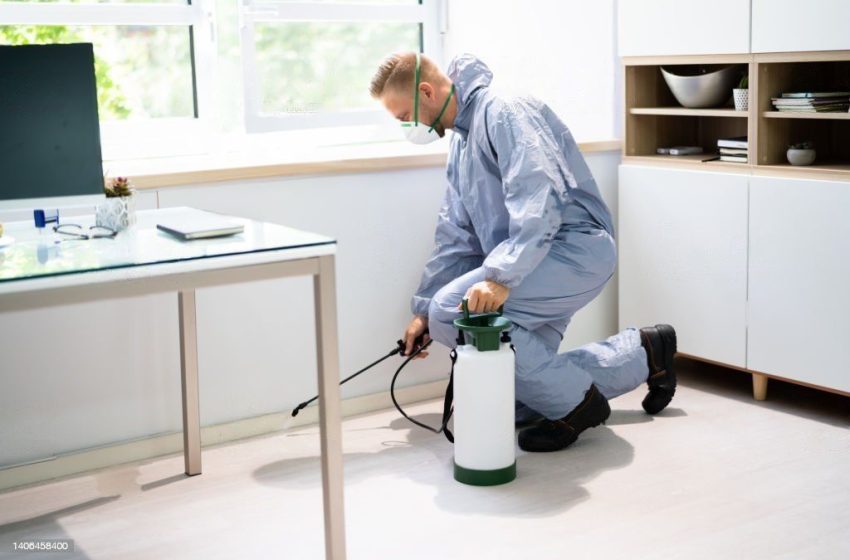The Ultimate Guide to Pest Control: Protecting Your Home and Health

Pests are more than just a nuisance; they can pose serious risks to your health and home. From rodents that chew through wires to insects that spread diseases, pests can cause significant damage and discomfort. That’s why effective pest control is crucial for maintaining a safe, healthy, and comfortable living environment.
In this guide, we’ll cover everything you need to know about pest control, including common pests, prevention tips, and treatment options.
Common Household Pests
Understanding the most common household pests is the first step in effective pest control. Here are a few of the usual suspects:
-
Rodents (Mice and Rats):
- Risks: Rodents can contaminate food, spread diseases like hantavirus and salmonella, and cause structural damage by gnawing on wood, insulation, and wires.
- Signs: Droppings, gnaw marks, nests, and scampering sounds in walls or ceilings.
-
Cockroaches:
- Risks: Cockroaches can trigger allergies, exacerbate asthma, and spread bacteria and pathogens like E. coli and salmonella.
- Signs: Shed skins, droppings, a musty odor, and sightings during the day (often indicating a large infestation).
-
Ants:
- Risks: While most ants are more of a nuisance, carpenter ants can cause significant structural damage by tunneling through wood.
- Signs: Trails of ants, particularly near food sources or in damp areas like kitchens and bathrooms.
-
Termites:
- Risks: Termites are silent destroyers, causing extensive damage to wood structures that can be costly to repair.
- Signs: Mud tubes, discarded wings, and hollow-sounding wood.
-
Bed Bugs:
- Risks: Bed bugs are not known to transmit diseases, but their bites can cause itching, allergic reactions, and significant psychological stress.
- Signs: Red, itchy bites on the skin, blood spots on bedding, and tiny black droppings near mattress seams.
-
Spiders:
- Risks: While most spiders are harmless, some species like the black widow and brown recluse can deliver venomous bites that require medical attention.
- Signs: Webs in corners, dark spots, and sightings of the spiders themselves.
Prevention Tips
Prevention is the best strategy when it comes to pest control. Here are some tips to keep your home pest-free:
-
Seal Entry Points:
- Ensure windows and doors are properly sealed, and use caulk to close gaps around pipes, vents, and utility lines. Repair any cracks in the foundation.
-
Maintain Cleanliness:
- Regularly clean your home, especially the kitchen, to eliminate food sources. Store food in airtight containers and promptly clean up spills.
-
Proper Waste Management:
- Use lidded trash bins and take out the garbage regularly. Keep outdoor trash areas away from the home and clean them frequently.
-
Eliminate Standing Water:
- Repair leaky pipes and faucets, and ensure that water doesn’t accumulate in areas like basements, crawl spaces, or around the foundation.
-
Yard Maintenance:
- Keep your yard tidy by trimming shrubs, mowing the lawn, and removing debris. Store firewood away from the home and elevate it off the ground.
-
Regular Inspections:
- Conduct regular inspections of your home’s interior and exterior to catch early signs of infestations. Pay special attention to basements, attics, and crawl spaces.
Treatment Options
If prevention isn’t enough, there are various treatment options available depending on the severity of the infestation:
-
DIY Methods:
- For minor infestations, DIY methods can be effective. Traps, baits, and insecticides are readily available and can address small-scale problems. Always follow the instructions carefully to ensure safety and effectiveness.
-
Professional Pest Control:
- For larger or more persistent infestations, hiring a professional pest control service is often the best option. Pest control professionals have the expertise and tools to effectively eliminate pests and prevent future problems. They can also provide customized treatment plans based on the specific needs of your home.
-
Integrated Pest Management (IPM):
- IPM is a holistic approach that combines preventive measures, monitoring, and targeted treatments to manage pests in the most effective and environmentally friendly way. This approach reduces the reliance on chemical treatments and focuses on long-term prevention.
The Importance of Regular Pest Control
Regular pest control is essential for maintaining a healthy and safe living environment. Pests can carry diseases, cause allergic reactions, and damage your property. By staying proactive with prevention and addressing issues as soon as they arise, you can protect your home and your family’s health.
In conclusion, pest control is a critical aspect of home maintenance that should not be overlooked. Whether you’re dealing with a current infestation or looking to prevent future ones, understanding common pests, taking preventive measures, and knowing when to call in the professionals are key to keeping your home pest-free. Possum removal Dandenong , the best defense against pests is a good offense—stay vigilant and act quickly to address any signs of trouble.

